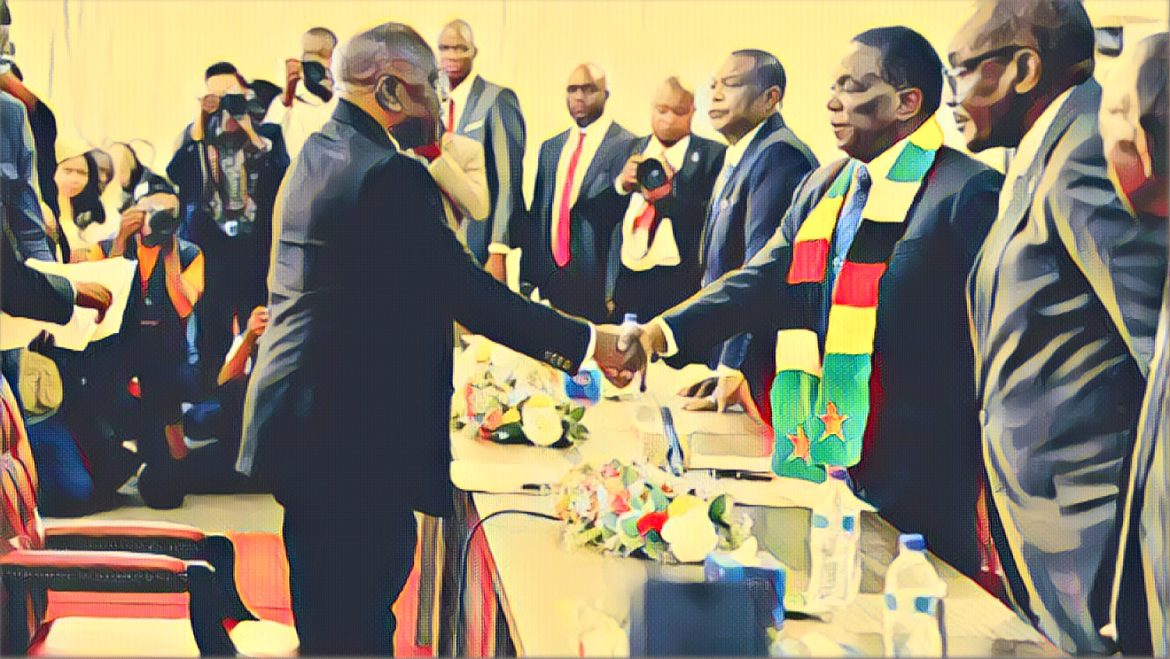Zimbabwe’s President Emmerson Mnangagwa has rescinded the appointments of two ministers he announced on Monday, in response to public outcry over his violation of the constitution. Mnangagwa had appointed John Paradza as Deputy Minister of Environment and Nokuthula Matsikenyere as Minister of State for Provincial Affairs and Devolution in Manicaland. However, both individuals were not members of parliament, as mandated by the constitution.
Section 104 of the Zimbabwean constitution permits the president to appoint up to seven ministers and deputy ministers from outside parliament, specifically chosen for their professional skills and competence. Mnangagwa had already exceeded this limit by appointing eight non-constituency ministers before Paradza and Matsikenyere. The two were notably absent when the rest of the cabinet ministers took their oath of office at the State House on Tuesday. President Mnangagwa’s spokesperson, George Charamba, confirmed the reversal of their appointments.
Charamba stated, “The two were dropped after it was realized that the president had exceeded the number of non-constituency ministers allowed by the constitution,” in an interview with New Zimbabwe, a London-based news website.
Mnangagwa’s recent cabinet reshuffle has evoked mixed reactions from the public and the opposition. While some have commended the president for introducing new faces and ensuring regional representation, others have criticized him for nepotism and recycling old politicians.
One of the controversial appointments included his son, Emmerson Mnangagwa Jr, who was named Deputy Minister of Finance. Additionally, the president appointed his nephew, Tafadzwa Mugwadi, as Minister of Information. The opposition Movement for Democratic Change (MDC) Alliance labeled Mnangagwa’s cabinet as “illegitimate, dangerous, and dynastic.” The party has expressed its intention to challenge the appointments in court and has called for a national dialogue to address the country’s political and economic crisis.
Zimbabwe is confronted with a multitude of challenges, including soaring inflation, widespread poverty, food insecurity, and human rights violations. The country has been under international sanctions since 2002 due to allegations of electoral fraud and human rights abuses.
President Mnangagwa assumed power in 2017 following a military coup that ousted long-time ruler Robert Mugabe. He secured a disputed election victory in 2018 against MDC Alliance leader Nelson Chamisa, who alleged electoral irregularities. Despite these setbacks, Mnangagwa has pledged to implement political and economic reforms to rejuvenate the nation and rebuild international relationships. He has also committed to upholding the rule of law and respecting the constitution.
This article is based on a report by New Zimbabwe.


